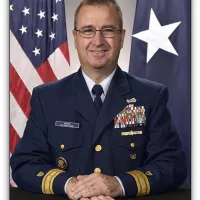
Themes of cultural recognition, indigenous legacies and ocean security sparked the opening of the 200th meeting of the Western Pacific Regional Fishery Management Council in Honolulu yesterday.
Chair Taulapapa Will Sword opened the historic session with a prayer in Samoan reminding members of their mission as servants entrusted with maximizing the use of spiritual gifts. “The Council’s acknowledgement of the place and people continues its commitment to incorporating indigenous knowledge into fisheries management for the region,” Sword added.
Shae Kamaka‘ala, Chair of the Council’s Indigenous Rights Committee, welcomed members in recognizing that the region encompassing the Council’s jurisdiction has indigenous, ancestral caretakers and pays respect to these longstanding cultural roots. Her remarks included a statement that “Hawai‘i remains an illegally occupied state of the United States government.”
The Council welcomed Rear Admiral Sean Regan, U.S. Coast Guard (USCG) District 14, who said he appreciated the response the USCG has received from the people in the region, and that he was favorably impressed by the Council’s work in protecting fisheries.
Admiral Regan emphasized the USCG’s mission is to “protect those who serve on the sea, protect against threats emanating from the sea and protect the sea itself.”
During the meeting, Nate Ilaoa from American Samoa complained that the USCG’s response to American Samoa has not been sufficient. He said that the Deeds of Cession grants powers to the United States, but also requires protections. He requested the USCG to protect American Samoa from illegal, unreported and unregulated fishing and foreign incursions and said the territory’s citizens deserve better.
The Council recommended collaboration with USCG to develop a plan for providing assets and resources to the territory, while also making certification courses more accessible to its citizens.



